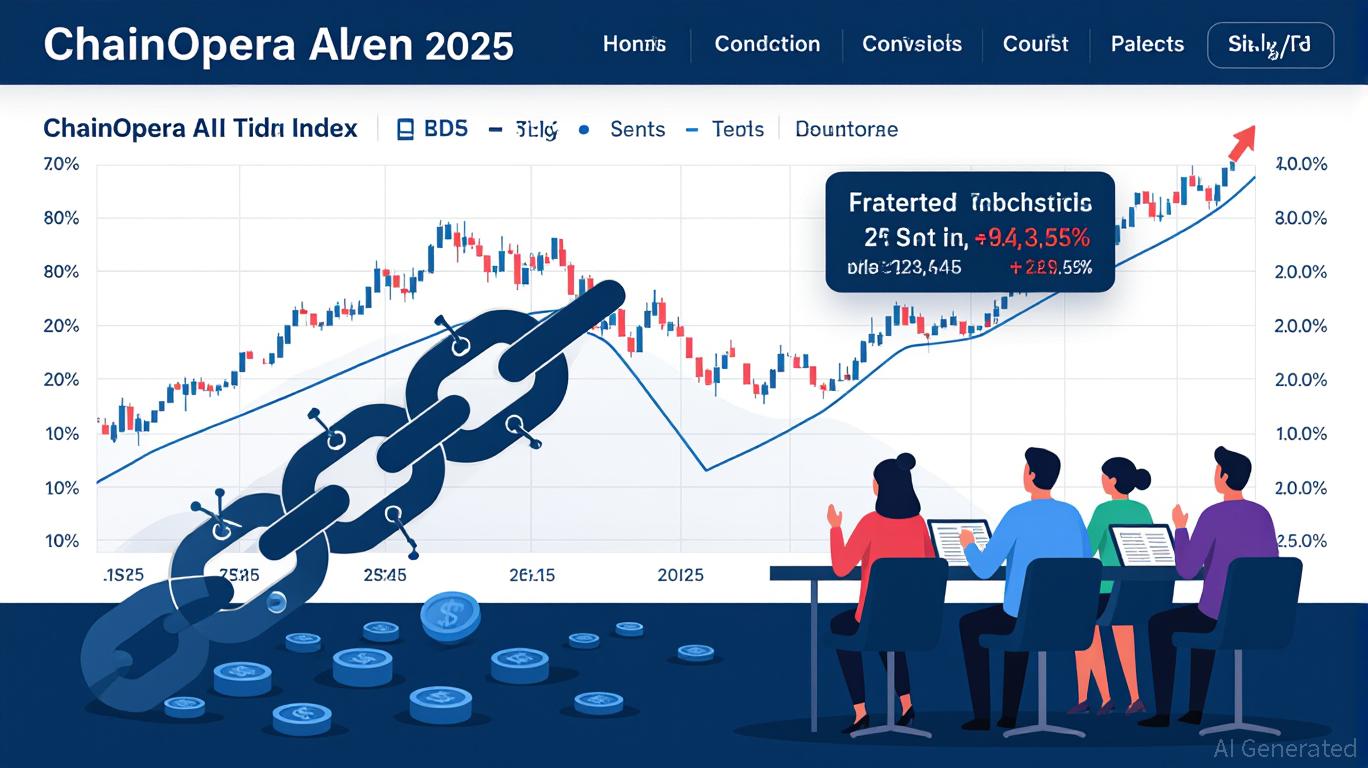A single entity allegedly captures 60% of aPriori airdrop via 14,000 wallets
A single entity appears to have exploited the aPriori airdrop, using thousands of coordinated wallets to claim a majority of the distributed tokens.
- Over 14,000 connected wallets collectively claimed more than 60% of the APR airdrop.
- Wallets were freshly funded via Binance, received identical 0.001 BNB for gas, created in tight time windows, and funneled tokens to new addresses, indicating a Sybil attack.
aPriori airdrop hit by sybil attack
One entity appears to have gamed aPriori airdrop, according to Bubblemaps, a blockchain analytics platform known for visualizing wallet connections. The airdrop claim opened on Oct. 23 on BNB Chain, giving users 3 weeks to choose between two options: claim a smaller portion of APR tokens immediately or wait until the Monad mainnet launch to unlock a larger share. The airdrop distributed 12% of total APR token supply, marking one of the largest drops ahead of a project’s mainnet debut.
Shortly after launch, Bubblemaps released findings suggesting that the airdrop may have been exploited by a single entity. According to Bubblemaps, over 14,000 connected wallets collectively claimed over 60% of the aPriori airdrop. The analysis revealed that these addresses were freshly funded through Binance, each receiving exactly 0.001 BNB for gas fees. They were created and funded in tight time windows, indicating automated coordination. The wallets were claimed APR tokens to new wallets, forming a secondary layer of linked addresses designed to obscure ownership.
The data visualization of the APR token distribution shows a dense network of interconnected wallets which suggests a sybil attack.
As of Nov. 11, Bubblemaps reported that the entity continued to fund new wallets to claim more tokens. The analytics firm stated it had reached out to the aPriori team but had not received any response.
Bubblemaps has since opened an investigative case on its Intel Desk, allowing the community to vote with BMT tokens to prioritize the issue for further analysis.
Sybil attacks continue to plague crypto airdrops
Sybil attacks, where a single entity controls numerous wallets to claim disproportionate amount of tokens, have become a recurring problem in token launches.
The most noteworthy recent example is the airdrop from MYX Finance . According to Bubblemaps’ analysis, about 100 freshly-funded wallets claimed about 9.8 million MYX tokens—worth about $170 million—through reportedly coordinated activity. These wallets were funded via OKX, had no prior history, and claimed tokens almost simultaneously on the event date. MYX Finance said the allocations were based on trading volume and liquidity provision and pointed to anti-Sybil protections in a campaign called “Cambrian”. However, Bubblemaps called the response vague and said the patterns strongly suggested coordinated manipulation.
Similarly, for Avantis airdrop , Bubblemaps reported that over 300 addresses were used by a single entity in a campaign to claim rewards, exhibiting several Sybil-attack features: wallets funded via Coinbase, USDC injections from very few senders, dormant prior to the event, claiming airdrop rewards, then pooling tokens and transferring to major exchanges. The estimated value of that exploit was estimated to be around $4 million.
Disclaimer: The content of this article solely reflects the author's opinion and does not represent the platform in any capacity. This article is not intended to serve as a reference for making investment decisions.
You may also like
U.S. Debt Fluctuations Surge Amid AI-Driven Borrowing Growth and Fed Faces Fiscal Uncertainty
- U.S. Debt Volatility Index hits one-month high in November, reflecting market anxiety amid government shutdown resolution and fiscal risks. - AI infrastructure debt surges 112% to $25B in 2025, driven by tech giants’ $75B in bonds for GPU/cloud projects, raising overleveraging concerns. - Fed faces mixed signals: October job losses push December rate cut odds to 68%, while gold/silver rise 2-3% as investors seek safe havens amid fiscal/geopolitical risks. - Delayed economic data from shutdown complicates

ChainOpera AI Token Plunge: An Alert for Investors in AI-Based Cryptocurrencies
- ChainOpera AI Index's 54% 2025 collapse exposed systemic risks in AI-driven crypto assets, driven by governance failures, regulatory ambiguity, and technical vulnerabilities. - C3.ai's leadership turmoil and $116.8M loss triggered sell-offs, while the CLARITY Act's vague jurisdictional framework created legal gray areas for AI-based crypto projects. - Model Context Protocol vulnerabilities surged 270% in Q3 2025, highlighting inadequate governance models as 49% of high-severity AI risks remain undetected

Navigating the Dangers of New Cryptocurrency Tokens: Insights Gained from the COAI Token Fraud
- COAI token's 2025 collapse exposed systemic risks in algorithmic stablecoins, centralized governance, and fragmented regulatory frameworks. - xUSD/deUSD stablecoins lost dollar peg during liquidity crisis, while 87.9% token concentration enabled panic selling and manipulation. - Regulatory gaps pre-collapse allowed COAI to exploit loosely regulated markets, but post-crisis reforms like MiCA and GENIUS Act now demand stricter compliance. - Investor sentiment shifted toward transparency, with demand for re

Filecoin (FIL) to Bounce Back? This Emerging MA Fractal Setup Suggests So!

